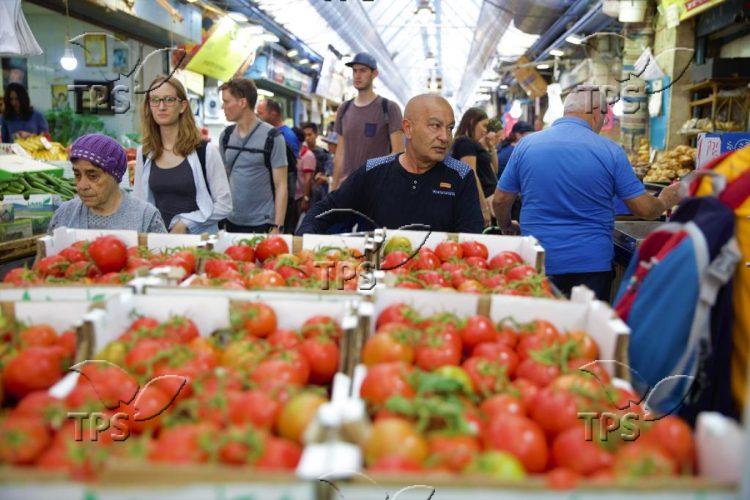Tomatoes of Tomorrow: Israeli Innovation Cuts Water Usage Without Yield Compromise
Jerusalem, 30 January, 2024 (TPS) -- Israeli researchers have successfully utilized genetic editing technology to cultivate tomato varieties that consume less water as they grow without compromising on yield. This innovation holds significant promise for sustainable agriculture and the pressing need for crops that can thrive in the face of global warming
The researchers, led by Professor Shaul Yalovsky and Dr. Nir Sade of Tel Aviv University focused on the challenge posed by the link between “water transpiration” and carbon dioxide uptake in plants. Water transpiration is the process of water evaporating from a plant’s stem, leaves or flowers.
Much of this evaporation takes place through specialized leaf openings called stomata. During drought conditions, plants respond by closing their stomata to reduce water loss. However, this action also decreases the plant’s ability to absorb carbon dioxide, a key element in its photosynthesis and sugar production.
To address this issue, the researchers used CRISPR genetic editing technology to target a gene known as ROP9. By eliminating ROP9, the researchers were able to induce a partial stomata closure — particularly at midday, when plants have their highest transpiration rates. However, in the morning and afternoon, when transpiration rates are lower, the stomata remained open, allowing the plants to absorb sufficient carbon dioxide and maintain sugar production.
Armed with this knowledge, the researchers then conducted an extensive field experiment involving hundreds of plants to assess the impact of the modified ROP9 on crops.
Surprisingly, the results showed that while the ROP9-modified plants lost less water during transpiration, there was no adverse effect on photosynthesis, crop quantity, or quality, including the sugar content in the fruits.
Moreover, the study led to the discovery of an unexpected mechanism for regulating the opening and closing of the stomata. The findings related to the level of oxidizing substances, known as reactive oxygen species, in the stomata. This discovery has practical implications for crop development, the researchers said.
“There is great similarity between the ROP9 in tomatoes and ROP proteins found in other crop plants such as pepper, eggplant, and wheat. Therefore, the discoveries detailed in our article could form the basis for the development of additional crop plants with enhanced water use efficiency, and for a deeper understanding of the mechanisms behind stomatal opening and closing,” said Dr. Sade.
The findings were recently published in the peer-reviewed scientific journal, PNAS.
As global demand for water-conserving crops intensifies, the findings could pave the way for similar innovations in other essential food crops, offering hope for a more resilient and resource-efficient future in agriculture, the researcher said.







